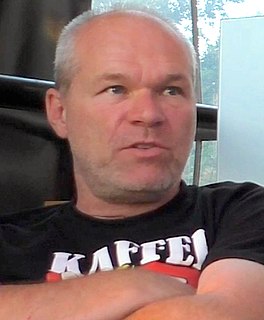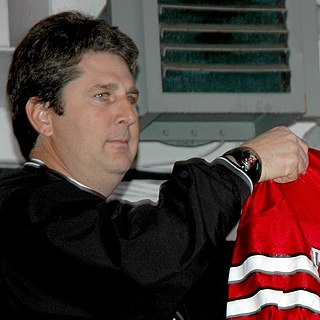A Quote by John Lithgow
I look around, and 50 percent of the big-budget entertainment you are seeing these days is dystopian. This is the era of 'Hunger Games' and blasted landscapes and 'The Walking Dead.'
Related Quotes
I just love the fact that all my pals are basically looked after. You know, we have these amazing deals, these guys split 50 percent. We have ownership 50 percent, all the bonuses 50 percent, and everybody's going to be alright. So going forward into the future, every one of these Millarworld projects, as we call them, 50 percent partners on everything. So it's just a really happy environment to be working in.
Interactivity is a big part of video games, which have been a big part of entertainment for 20 years. That's what we think of as a 'lean-forward' type of entertainment. It's much more intense. But TV is more of a 'lean-back' entertainment - so the big improvement there is on-demand, because it conforms to your schedule.
The universal pervasion of ugliness, hideous landscapes, vile noises, foul language...everything. Unnatural, broken, blasted; the distortion of the dead, whose unburiable bodies sit outside the dug outs all day, all night, the most execrable sights on earth. In poetry we call them the most glorious.
Pre-history tells us that our species used to be a hunter-gatherer society. This means that the job of raising a family was split 50-50 between the men and the women - the man's 50 percent share was to sit in the woods with a sharp stick, waiting for something to hunt to wander by, and the woman's 50 percent was to do everything else.
Uganda's budget is 40 percent aid-dependent. Ghana's budget is 50 percent aid-dependent. Even if you cancel the debt, you don't eliminate that aid dependency. This is what I mean by getting to the fundamental root causes of the problem. Government, the state sectors in many African countries need to be slashed so that, you know, you put a greater deal of reliance on the private sector. The private sector is the engine of growth. Africa's economy needs to grow but they're not growing.




































